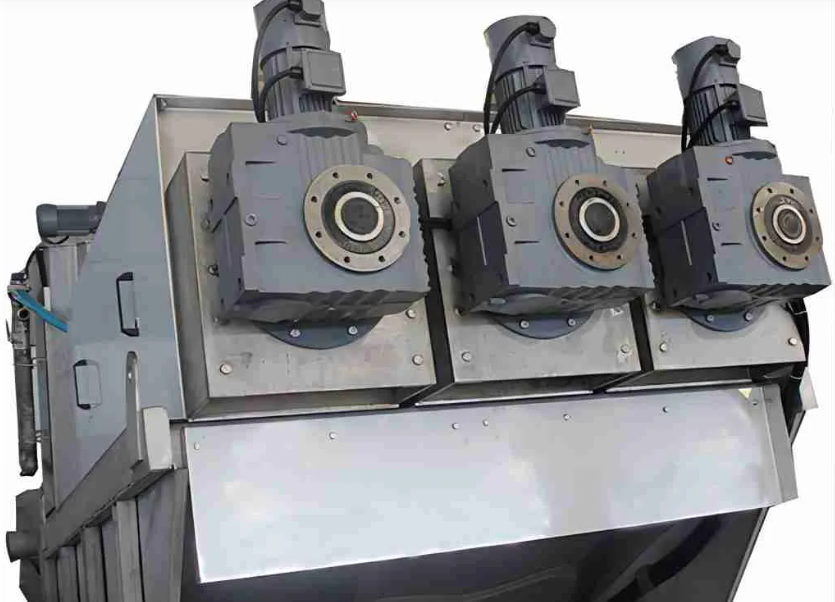In the ever-evolving field of wastewater treatment, sludge dewatering stands out as a critical process for improving operational efficiency and environmental sustainability. Among the various technologies available, the Multi-Disc Screw Press (MDSP) has emerged as a particularly effective solution. This article explores the advantages of using Multi-Disc Screw Presses for sludge dewatering and their impact on wastewater management.

Understanding Multi-Disc Screw Press Technology
The Multi-Disc Screw Press is an advanced dewatering device designed to handle a variety of sludge types. Unlike traditional dewatering methods that rely on mechanical, chemical, or thermal processes, the MDSP utilizes a combination of screw press mechanics and a series of rotating discs. This technology effectively separates water from the sludge, resulting in a more concentrated solid phase. The key components of the MDSP include a screw shaft, a series of discs mounted on the shaft, and a perforated drum through which the sludge is pressed.
Operational Efficiency and Performance
One of the main advantages of the MDSP is its high operational efficiency. The design of the Multi-Disc Screw Press allows for continuous operation, meaning that it can handle large volumes of sludge without the need for frequent interruptions. This continuous process not only increases throughput but also reduces operational costs associated with downtime and maintenance. Additionally, the MDSP can achieve high dewatering performance with lower energy consumption compared to other dewatering technologies such as centrifuges or belt presses.
Environmental and Economic Benefits
The benefits of using a Multi-Disc Screw Press extend beyond operational efficiency. Environmentally, the MDSP contributes to reduced sludge volume, which minimizes the need for disposal and transportation. This reduction in sludge volume not only lowers the associated costs but also lessens the environmental impact of sludge handling. From an economic perspective, the MDSP’s ability to achieve high levels of dewatering with minimal energy consumption results in significant cost savings over time. Moreover, the system’s compact design and ease of maintenance contribute to lower operational expenses and a more sustainable wastewater treatment process.
Versatility and Adaptability
Another notable advantage of the Multi-Disc Screw Press is its versatility. The technology can be adapted to various types of sludge, including municipal, industrial, and agricultural waste. This adaptability makes the MDSP a valuable asset for diverse applications, ranging from small-scale operations to large municipal wastewater treatment facilities. The ability to handle different sludge characteristics without significant adjustments or modifications further underscores the technology’s flexibility and efficiency.
Future Outlook
As the demand for efficient and sustainable wastewater management solutions continues to grow, the Multi-Disc Screw Press is likely to play an increasingly prominent role. Advances in technology and ongoing research are expected to enhance the performance and capabilities of MDSP systems, making them even more effective in meeting the challenges of modern wastewater treatment. As industries and municipalities seek to optimize their operations and reduce their environmental footprint, the Multi-Disc Screw Press stands out as a forward-thinking solution that addresses both efficiency and sustainability.
In conclusion, the Multi-Disc Screw Press represents a significant advancement in sludge dewatering technology. Its operational efficiency, environmental benefits, and adaptability make it a compelling choice for modern wastewater treatment facilities. As we move towards a more sustainable future, the continued evolution of MDSP technology will play a crucial role in enhancing the effectiveness and efficiency of wastewater management practices worldwide.